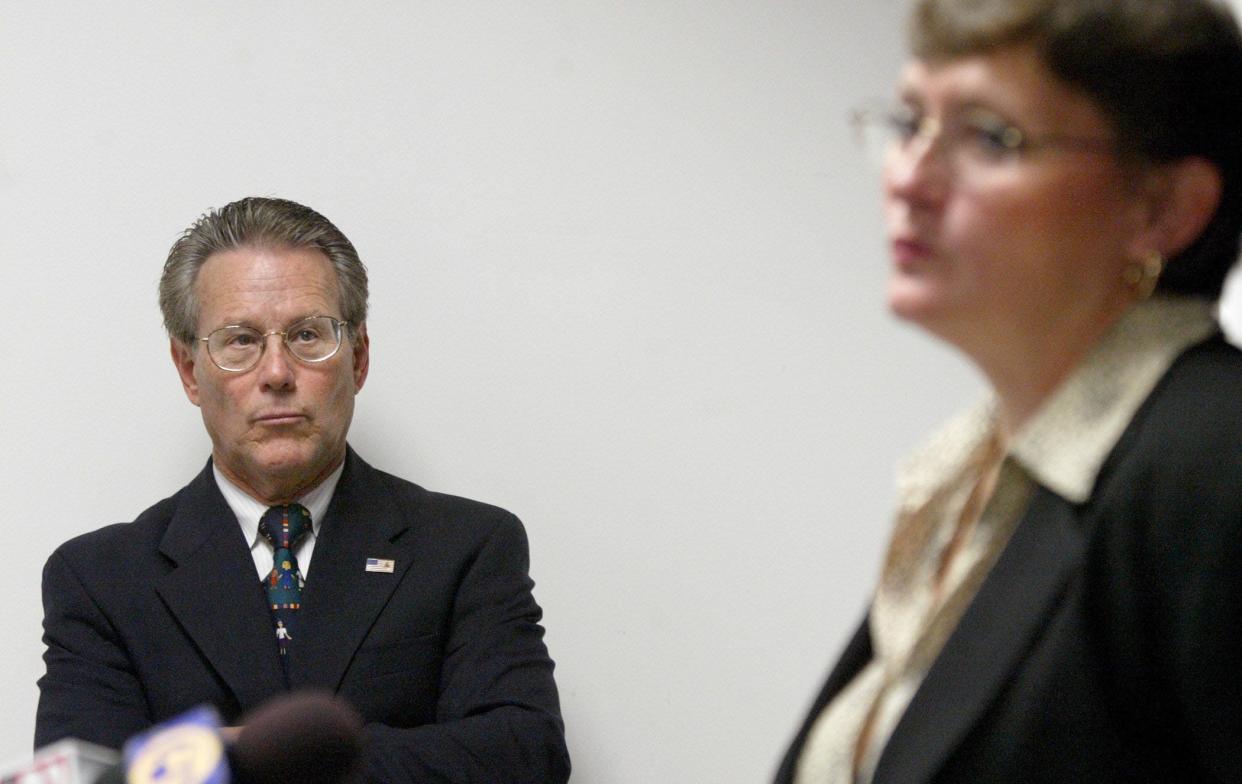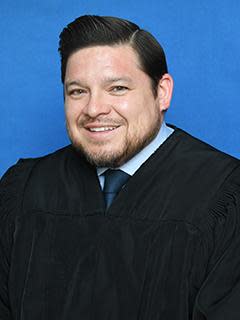Why was the first case against Jeffrey Epstein torpedoed? Judge decides public won't find out
In a stunning move, minutes after Gov. Ron DeSantis signed the Jeffrey Epstein grand jury bill, Circuit Judge Luis Delgado issued an order not to make public any of the documents detailing what happened when a Palm Beach County grand jury in 2006, considering the first ever criminal charges against Epstein, came up with only one — soliciting a prostitute.
And that charge didn't address the fact that multiple underage girls as young as 14 had accused Epstein either of raping or molesting them at his Palm Beach mansion.
The Palm Beach Post sued in 2019 to release the transcripts after its investigation discovered that then-Palm Beach County State Attorney Barry Krischer had undermined his own case against Epstein in secret. The move to take the decision to a grand jury was highly unusual for that kind of case.
More: Jeffrey Epstein: DeSantis signs bill meant to release secret 2006 grand jury documents
When the grand jury met, Krischer's prosecutor Lanna Belohlavek presented a case that she weakened herself by questioning the only victim who testified about her MySpace pages, which depicted simulated sex, drinking and taking drugs, sources with knowledge of the proceedings told Post investigative reporters. Those pages were supplied by Epstein's lawyers to the State Attorney's Office.
The Post could not find any evidence in public records that prosecutors had even spoken to any of the victims that Palm Beach police found. They didn't even prep the lone victim to testify for her appearance before the grand jury.
Read The Post's 2019 investigation: Appeals court opens way to judge's review of Epstein grand jury transcripts
Gov. Ron DeSantis signed a bill on Thursday morning meant to release the documents. It will take effect July 1, but someone still has to petition the court to get them released.
Here are some of the questions the public won't get answers to unless another judge orders them to be released:
How was the lone victim to testify questioned? Was it only about her social media pages?
Were the multiple victims Palm Beach police found even mentioned?
Did any other witnesses undermine the case?
Did prosecutors recommend the prostitution charge? Did they give grand jurors any other choices?

The victims want to see what happened: Jeffrey Epstein victim goes public: ’I want to know why’

Had Krischer pursued the prosecution vigorously, scores of girls and young women might not have been sexually abused by Epstein and his co-conspirators in the years that followed what most consider to be a light jail sentence.
After Epstein pleaded guilty in 2008 to two prostitution-related felonies, he was sentenced to 18 months in jail, which turned out to be 13 months in which he spent six days a week, 12 hours a day, on work release. More than one woman has said she was flown in for sex at his newly formed company where he worked during the day.
New York federal prosecutors in 2019 charged him with far more serious charges of sex trafficking minors. He was arrested in July that year and was found dead, hanged in his jail cell, less than a month later.
The Fourth District Court of Appeal in May ordered Delgado to review the documents to see which ones he should release in "furtherance of justice," a part of state law governing grand-jury secrecy that The Post had based its lawsuit on.
The Post had appealed Circuit Judge Donald Hafele's December ruling that said while The Post's arguments were sound, he didn't have the authority to release the documents. The Fourth DCA said the trial court judge did indeed have that authority.
This article originally appeared on Palm Beach Post: Jeffrey Epstein case torpedoed: Judge decides no answers for public
